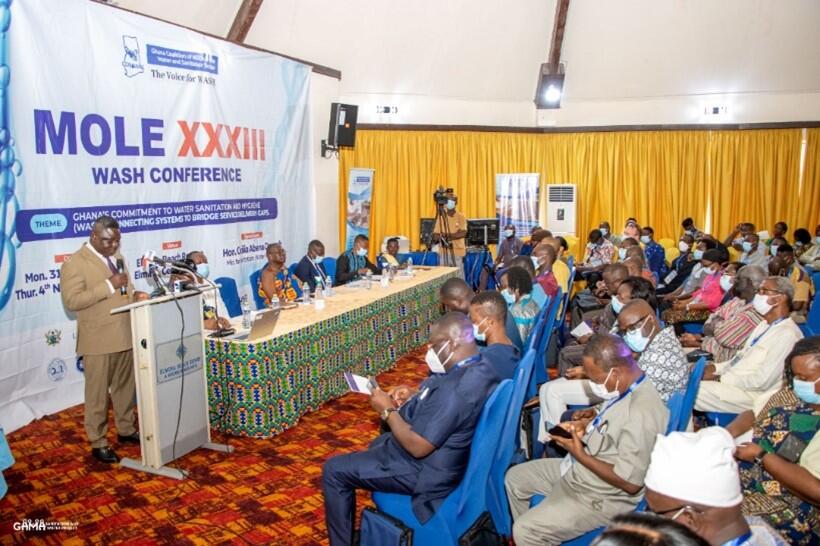
Ghana CSOs-led WASH conference ends with 7-points communique.
Published on: 20/12/2022
Elmina, Ghana — Stakeholders at the 33rd CSOs-led Mole conference reflected on Ghana’s WASH commitments towards achieving national and SDG 6 targets for water, sanitation, and hygiene (WASH) in the country and concluded that there was the need for system strengthening at all levels and across sectors to bridge the service delivery gaps.
The 4-day conference (Nov 1-4, 2022), organised by the Coalition of NGOs in Water and Sanitation (CONIWAS), in collaboration with partners including IRC, attracted 121 participants drawn from ministries, departments and agencies, development partners, civil society organisations, NGOs, community-based organisations, faith-based organisations, academic and research institutions, private sector and the media.
Hon. Issahaku Chinia, Deputy Minister for Sanitation and Water Resources (MSWR) opened the conference, which was chaired by Nana Kodjo Konduah IV, Omanhene of Edina Traditional Council, Elmina. Attah Arhin, CONIWAS chair in a welcome address stated, “Coming after IRC’s well organised and well patronised All systems Go Africa Symposium, held for the first time in Ghana with support from UNICEF and MSWR, this Mole XXXIII Conference is expected to help us deepen the discourse, take the key decisions forward and consolidate the gains.” He commended government and all DPs for the many water projects completed and ongoing, but quickly observed, “Most of these are in the urban and peri-urban areas. We make a popular appeal for support to the Community Water and Sanitation Agency to enable its ongoing reforms to succeed - in order to sustainably increase access to safe drinking water.”
Under the main conference theme, ‘Ghana’s commitment to Water, Sanitation and Hygiene (WASH): Connecting systems to bridge service delivery gaps,’ the conference discussed five sub-themes.
The first sub-theme, Area-wide Approaches in WASH Service Delivery was led by IRC Ghana Country Director, Vida Duti. She explained the concept of WASH systems and area-wide approaches using the case of Asutifi North; and called on the sector to explore area-wide approaches to service delivery that addresses equity concerns and promote sustainable WASH service delivery for everyone everywhere.
The other sub-themes included, Multi-stakeholder Partnerships in WASH Service Delivery; Innovative WASH Financing; Shared Accountability for WASH Services Delivery; and Monitoring, Evaluation and Learning in WASH Service Delivery.
At the end of the 4-days deliberations, the conference came with a 7-point communique calling for greater political and financial commitment among others:
For the full Mole XXXIII WASH conference communique see the download under More info.
CONIWAS used the platform to present appreciation plaques to the main convening partners, including IRC, in recognition of their backing; and called for their continued support in advocating for the implementation of the key decision points towards sustainable WASH service delivery for all.